The University of Edinburgh and Rice University have identified each other as strategic partners to foster deep collaborations in research and education. The Rice-Edinburgh Strategic Collaboration Awards (SCA) have been established to facilitate and support joint initiatives that will strengthen the two universities’ strategic priorities as well as develop multi-disciplinary cutting-edge research to create academic and societal impact.
Below are the winners of the first round of award grants.
Rice-Edinburgh 2022 SCA Award Winners
- Determining the Kitaev interaction in van der Waals ferromagnet CrI3
- Interplay between cellular differentiation and contact-based interactions during early development
- Algorithmic Foundations for Variational Quantum Algorithms
- Futures of Engineering Life: Past Potentials and Present Prospects
- Proposal for an Edinburgh-Rice Climate Infrastructure Research Network
- Fluidic Control Schemes for Next-Generation Soft and Wearable Robots
- Towards improved assurance of carbon removal using biochar: the key to accelerated market demand and deployment
- Intelligent Particles: Learning to Design Adaptive and Online Particle Filters
- Fingerprint Raman Spectroscopy for Organic Molecule Detection in Astrobiology
- Intervention to Develop Students’ Leader Identity
- Nanoengineering-Enabled Thermal Management for Space Exploration
- Quantitative finite-horizon temporal reasoning: algorithms and logics
- Theorems of the Alternative of Mixed-Integer Programs
- Rice – Edinburgh Philosophy: A Partnership of Thought
- Modulating macrophage function by gene editing in primary immune cells
Determining the Kitaev interaction in van der
Waals ferromagnet CrI3
This project integrates neutron scattering experiments with theoretical calculations aimed at gaining a fundamental understanding of the magnetic order and spin dynamics in bulk two-dimensional (2D) van der Waals (vdW) honeycomb lattice ferromagnet CrI3... As a magnetic analog of graphene, two-dimensional honeycomb ferromagnet CrI3 is exciting because their robust ferromagnetism down to monolayer and tunable magnetic structure can provide promising future applications in spintronic nano-devices. However, the microscopic Hamiltonian that determines the electronic/magnetic properties of the material has not been determined. Here we propose to combine neutron scattering experiments and theoretical calculations to address this fundamental question and provide a conclusive answer within 1 year. The outcome of our results will form the basis for future investigations of other honeycomb lattice magnets and joint proposals for external funding opportunities. Expand for full Project Abstract
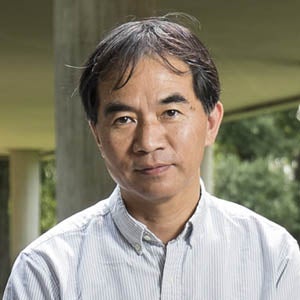 |
Sam and Hellen Worden Professor of Physics, Rice University |
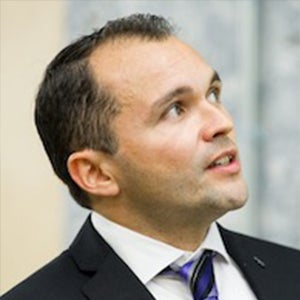 |
Reader in Theoretical and Computational Physics, University of Edinburgh |
Interplay between cellular differentiation and contact-based interactions during early development
During embryonic development, cells adopt particular fates, and, at the tissue level, are sculpted to ultimately become the organs of the body... Increasing evidence indicates a strong coupling between these processes with feedbacks between cell mechanics and cell fate decisions. Assembly of cells is governed in part by adhesion molecules known as cadherins which are expressed at the cell membrane and form homotypic interactions between cells expressing the same cadherin molecule. The pluripotent cells of the early embryo form a continuous sheet of cells expressing E-Cadherin, while some differentiated cell types switch to expressing N-Cadherin during the process of differentiation. This project capitalizes on the substantial expertise of the Lowell lab in studying cadherins and cell interactions during differentiation together with that of the Warmflash lab in creating stem cell-based models of early human development to study the role of cadherin switching in cell fate decisions in the early embryo. Expand for full Project Abstract
 |
Associate Professor, Biosciences, Rice University |
 |
Personal Chair of Stem Cell Biology and Early Development, Institute for Stem Cell Research / School of Biological Sciences / College of Science & Engineering, University of Edinburgh |
Algorithmic Foundations for Variational Quantum Algorithms
The goal of the proposal is to build algorithmic foundations, along with theory, that accelerate problem solving in variational quantum computing scenarios, as found in finance optimization, chemistry and physics simulations, scientific computing, theoretical computer science and optimization... Quantum computers require immediate attention in their own right. While prototypes are being built and verified now, how we can best utilize quantum hardware for practical purposes is widely open. The Quantum Approximate Optimization Algorithm (QAOA) is a promising technique for a range of optimization problems using quantum computers. The goal is to drive connections from non-convex optimization, in order to characterize the QAOA objective landscape, and study the behavior of acceleration within such a framework. The PIs’ aim is to provide methodologies that perform faster and better in practice, as well as introduce theory that justifies their performance. Expand for full Project Abstract
 |
Noah Harding Assistant Professor, Computer Science, Rice University |
 |
Lecturer (Assistant Professor), School of Informatics, University of Edinburgh |
Futures of Engineering Life: Past Potentials and Present Prospects
For the past half-century, from the invention of recombinant DNA to genomic engineering today, the understanding of life as a malleable material and a new platform for emerging biotechnologies, has been a touchstone... This has raised pressing questions about technological innovation, interdisciplinary collaboration, potential risk, consumer demand, public interest, and all the associated complexities of work on the forefront of science in modern representative democracies. Our proposal aims to engage with these questions with two workshops, one historical in nature hosted by Rice, and the other contemporary in focus hosted by Edinburgh. By gaining better understanding of how the unknown potentials and tensions that first emerged at the dawn of genetic engineering relate to the challenges of contemporary innovation, we aim to elucidate our current moment, and moments to come, as scientists and engineers are envisioning new approaches and trying to grapple with policy prospects. Expand for full Project Abstract
 |
Baker College Chair for the History of Science, Technology, and Innovation, Rice University |
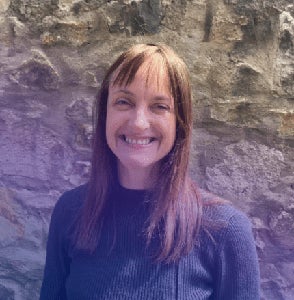 |
Professor of Science and Technology Studies, Department of Science, Technology, and Innovation Studies, University of Edinburgh |
Proposal for an Edinburgh-Rice Climate Infrastructure Research Network
Long a topic of research interest in engineering and related STEM disciplines, infrastructure has lately become one of the most important research areas within the human sciences... Social researchers have developed research paradigms focused on the social, cultural and political dimensions of urban infrastructures, economic infrastructures, and environmental infrastructures, among others. Given the urgent context of climate emergency and the strategic priorities of the Rice and Edinburgh administrations, we propose to develop a Climate Infrastructure Research Network (CIRN) to help accelerate the study of the social dynamics of climate mitigation and climate adaptation infrastructure projects around the world. Edinburgh and Rice have several researchers recognized as international leaders in the study of climate mitigation infrastructures including solar power (Cross, Günel), wind power (Boyer, Howe), marine and tidal energy (Watts), mobile energy supply (Günel), coastal sea level adaptation (Howe) and electrification (Boyer). Based upon this record of accomplishments, we can develop an internationally distinctive area of excellence in climate infrastructure analysis through a cross-campus collaboration. CIRN would constitute the world’s first network of social researchers focused on comparative theoretical and field research on climate infrastructure. Expand for full Project Abstract
 |
Professor, Anthropology, Rice University |
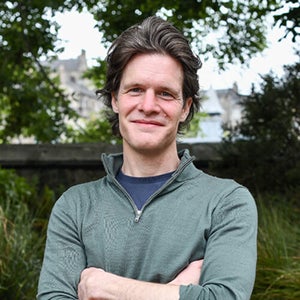 |
Professor, Anthropology, University of Edinburgh |
Fluidic Control Schemes for Next-Generation Soft and Wearable Robots
The field of soft robotics has experienced tremendous growth over the past decade, drawing interest due to the utility of soft robots in applications involving handling of fragile objects or close collaboration with humans, their relatively low cost and light weight, and their resistance to impact and harsh conditions... To fully realize these advantages, researchers are now investigating methods to simplify or replace the existing hard, bulky control infrastructure ubiquitous to soft robots with onboard control methods. PIs Preston and O’Malley at Rice and Stokes at UoE are working in this area, but have not yet formed a robust collaboration. This proposal will support one workshop at Rice, one meeting with the PIs and students at UoE, travel to international conferences to present results of the collaboration, and submission of a proposal to the NSF-UKRI solicitation in the amount of US$ 1 million, among other proposals resulting from the collaboration. Expand for full Project Abstract
 |
Assistant Professor of Mechanical Engineering, Rice University |
 |
Professor and Personal Chair in Bioinspired Engineering, University of Edinburgh |
Towards improved assurance of carbon removal using biochar: the key to accelerated market demand and deployment
Carbon emissions reduction is proceeding too slowly to limit global temperature rise to 2.0°C... Balancing emissions with “removals” requires rapid investment in CO2 sequestration technologies, which will create massive demand for C credits in both voluntary C markets and future governmental schemes. Biochar is a uniquely “ready” C sequestration technology, with attractive co-benefits in agriculture and ecosystems.
A key constraint to meeting demand is investor confidence in the permanence of biochar removal. This affects other C sequestration options as well, but these are perceived more permanent. Current biochar assessment methodologies are either highly conservative or not currently available in a market-appropriate form.
We propose combining institutional biochar expertise to generate new metrics that will allow investors to quickly assess credit quality for specific biochar products. We will also develop a conceptual model connecting oxidative and physical aging processes, which will advance scholarly understanding of biochar permanence. Expand for full Project Abstract
 |
Professor, Earth, Environmental and Planetary Sciences, Rice University |
 |
Senior Lecturer, Geosciences, University of Edinburgh |
Intelligent Particles: Learning to Design Adaptive and Online Particle Filters
Predicting the future of complex systems that evolve over time is essential for our lives: from forecasting a hurricane to anticipating the next epidemic outbreak, a good predictive model can directly contribute to increased quality of life... However, the intricate dynamics of many real-world systems require high-dimensional representations, turning inference and prediction into challenging tasks. Particle filters (PFs) are the de facto tools for approximating Bayesian inference in this context. This project proposes a new generation of PFs that will be able to tackle high-dimensional models in an efficient, accurate, and online manner, thus impacting countless areas of applied science. We will achieve this by combining notions of artificial intelligence (normalizing flows and reinforcement learning) with novel designs for online PFs. We target an application in climate change, namely the prediction of the evolution of forest biomass through satellite data. The methodological breakthroughs will impact many other fields. Expand for full Project Abstract
 |
W. M. Rice Trustee Assistant Professor, Electrical and Computer Engineering, Computer Science , Rice University |
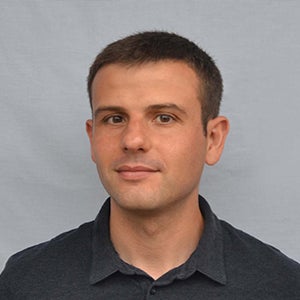 |
Reader (Associate Professor), Statistics and Data Science, University of Edinburgh |
Fingerprint Raman Spectroscopy for Organic Molecule Detection in Astrobiology
Raman spectroscopy can identify past and present signatures of life in ancient rocks and extraterrestrial materials... In this collaboration, we propose to link the expertise in Raman spectral analysis at Rice University with a series of astrobiology questions being answered by researchers at the University of Edinburgh’s UK Centre for Astrobiology. They encompass the study of ancient organics in meteorites, biosignatures of life in the ancient rock record, and the study of the microbial alteration of artificial materials in space. Raman analysis of the ‘fingerprint’ bands of these materials will allow us to characterize them in a non-destructive way not possible previously. Our work will advance the search for life on early Earth, on other planetary bodies such as Mars, and on human space exploration. It will also initiate a durable collaboration between Rice and the University of Edinburgh. Expand for full Project Abstract
 |
Professor, Department of Physics and Astronomy, Rice University |
 |
Professor, School of Physics and Astronomy, University of Edinburgh |
Intervention to Develop Students’ Leader Identity
Worldwide challenges around equity, poverty, and climate change require that individuals be prepared to drive change... Finding ways to design meaningful leader development interventions is important for improving the performance of individuals, teams, and organizations. Although much leader development focuses on providing experiences that develop an array of leadership skills, recent research has begun to explore the dynamics of how individuals develop and construct a leader identity—a dynamic construct that includes schemas, experiences, and representations of oneself as a leader (Epitropaki et al., 2017). Developing a leader identity is a life-long process. However, different factors determine who identifies as a leader. We propose a study to test an intervention aimed at developing university students’ leader identity across different student groups at Rice University. The results of the study will be used to design a workshop to benefit widening participation students at the University of Edinburgh. Expand for full Project Abstract
 |
Director, Doerr Institute and Professor, Psychological Sciences, Rice University |
 |
Chair in Leadership Development, University of Edinburgh |
Nanoengineering-Enabled Thermal Management for Space Exploration
Advanced nanoengineered surfaces enabling a wide range of functionalities are excellent candidates for interfacial mass transport and thermal management... While superhydrophilic and superhydrophobic functional surfaces provide enhanced liquid transport, these surfaces currently lack transport directionality, limiting thermal management capabilities. Implementation of gradient structured surfaces can overcome this drawback by tailoring liquid transport to the regions of interest. The unique coupling of robust nanostructured surfaces currently investigated at Rice in collaboration with NASA and the microfabrication of gradient surfaces exploited at UoE contributing to ESA offers the potential for synergistic development of enhanced interfacial transport at both fundamental and applied scales. This project will enable the collaboration between 3 Early Career Researchers and one full Professor, training and transferable skills for a Research Associate and for a PhD from Rice to UoE and vice-versa, and the necessary thrust and framework to coordinate a larger-scale proposal targeting the NSF-UKRI scheme (US$ 1M). Expand for full Project Abstract
 |
Assistant Professor of Mechanical Engineering, Rice University |
 |
Senior Lecturer, Institute for Multiscale Thermofluids, School of Engineering, University of Edinburgh |
Quantitative finite-horizon temporal reasoning: algorithms and logics
Temporal logic model checking is a widely deployed verification technology, with many industrial applications... Many application areas, however, including in AI, require *quantitative*, finite-horizon, temporal reasoning about the *degree* to which system executions satisfy temporal goals. We propose to study automated quantitative temporal reasoning for finite-horizon systems, aiming to develop model-checking and synthesis algorithms that quantify the degree to which the system satisfies temporal goals, and optimize tradeoffs between goals.
We focus on two related research thrusts:
A. Prior joint work by the PIs developed an algorithmic framework for multi-objective probabilistic model checking of Markov Decision Processes (MDPs) against linear temporal logic (LTL) properties. We aim to extend this framework to important infinite-state MDP settings.
B. Specifications in multi-valued temporal logics allow a satisfaction value in an interval [0,1], rather than just true/false. Several such logics have been devised, focused on infinite-horizon properties. We will devise natural finite-horizon counterparts of these logics. Expand for full Project Abstract
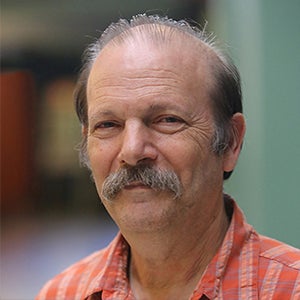 |
University Professor, & Karen Ostrum George Distinguished Service Professor in Computer Engineering, Department of Computer Science, Rice University |
 |
Professor; Chair of Algorithms, Games, Logic, and Complexity, University of Edinburgh |
Theorems of the Alternative of Mixed-Integer Programs
Mixed-integer programs (MIPs) are difficult optimization problems that are ubiquitous in society... We seek to characterize when an MIP is feasible. We establish novel theorems of the alternative, including those analogous to Farkas’ lemma for MIPs based on superadditive duality. We construct a certificate of infeasibility for MIPs. We develop a special algorithmic method to derive the certificate of infeasibility. Expand for full Project Abstract
 |
Noah Harding Chair and Professor of Computational Applied Mathematics and Operations Research, Rice University |
 |
Lecturer, School of Mathematics, University of Edinburgh |
Rice – Edinburgh Philosophy: A Partnership of Thought
Several faculty members in the philosophy departments at Rice University and the University of Edinburgh share overlapping research interests and have, to date, established informal relationships of intellectual collaboration... This presents a unique, timely and fortuitous opportunity to forge a stronger and more productive partnership between two departments with world-renowned faculty specializing in ethics, moral philosophy, and political philosophy. Together, we write in application for the Rice-Edinburgh Strategic Collaboration Award, which would allow us to formalize our existing relationships and lead to a more robust intellectual collaboration between our two institutions. This partnership will be marked by an inaugural conference held June 2023 in Edinburgh, focused on the topics of recognition and alienation, followed by an online workshop on the same theme, and another online workshop on a new theme. In future years, we hope to have further collaborative workshops in person either at Rice or in Edinburgh focusing on these areas of overlapping faculty interest. Expand for full Project Abstract
 |
Assistant Professor, Department of Philosophy, Rice University |
 |
Senior Lecturer, Department of Philosophy, University of Edinburgh |
Modulating macrophage function by gene editing in primary immune cells
The goal of this joint project is to further develop the collaboration between the Bao lab at Rice and Gary lab at Edinburgh on gene editing based modulation of macrophage biology and function for treating Cystic Fibrosis (CF)... We will conduct experiments to assess how correcting mutant cystic fibrosis transmembrane regulator (CFTR) gene in macrophages from CF patient impacts their pro-inflammatory phenotype, building on our preliminary data showing that editing of the CFTR gene in CF iPSCs corrects the aberrant expression of inflammatory genes. We will edit primary monocytes from patients with CF and obtain macrophages from them for functional assessment, and compare with control cells. This project will also enable us to compare gene editing approaches to the FDA approved CF therapeutics in modulating immune cell function. This work will provide strong preliminary data for grant applications and result in a joint publication. Expand for full Project Abstract
 |
Foyt Family Professor and Chair, Bioengineering, Rice University |
 |
Reader, Institute for Regeneration and Repair, University of Edinburgh |
